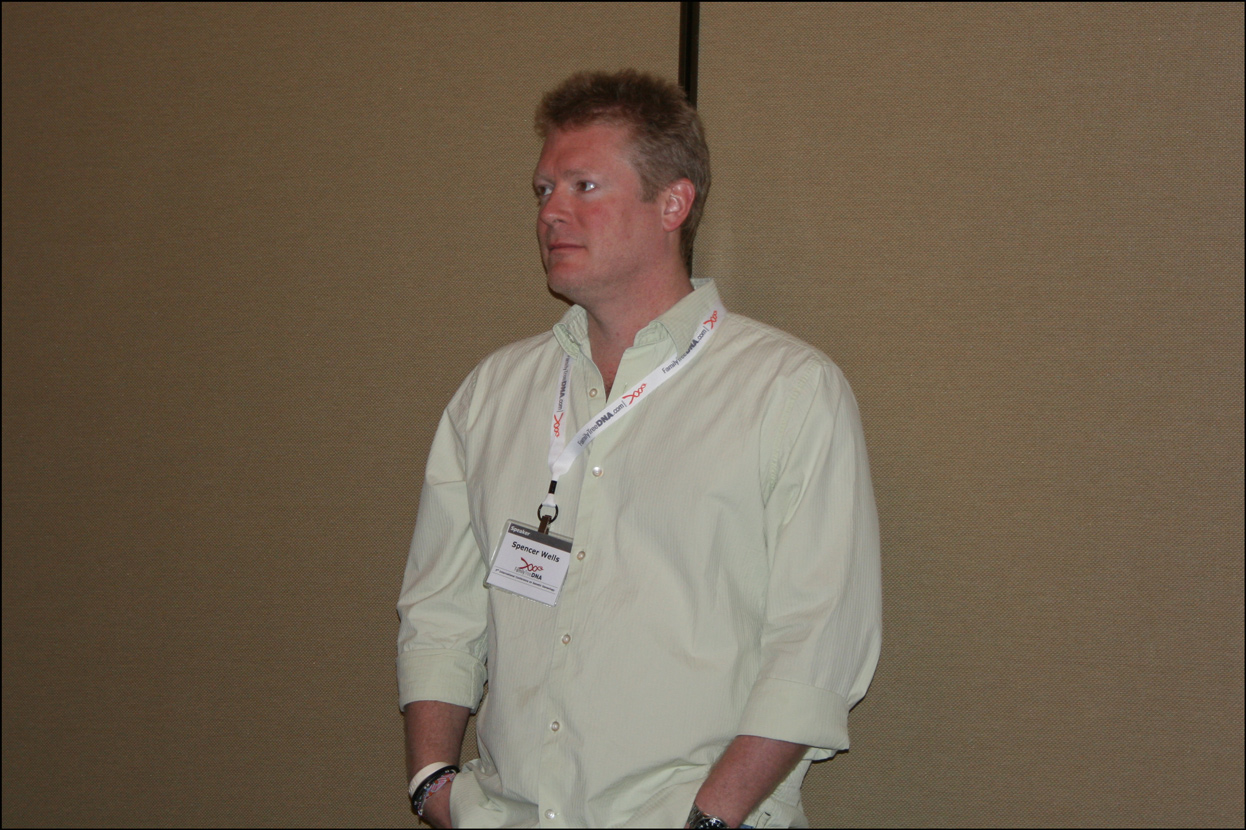On Saturday, March 14, 2009, Spencer Wells, National Geographic Explorer-in-Residence and the scientific director of the Genographic Project, addressed the Family Tree DNA 5th International Conference on Genetic Genealogy for Project Administrators.
Spencer Wells, PhD
SOURCE: Spencer Wells, PhD (Houston, Harris County, Texas). Photographed by Stephen J. Danko on 14 March 2009.
The Genographic Project has collected 50,000 DNA samples from indigenous and traditional groups. Analysis of the DNA is underway, and the first publications are out now. The Genographic Project intends to store these DNA samples of indigenous peoples indefinitely.
296,000 members of the general public have also participated in the Genographic Project, and the project is still selling 50,000 test kits per year. These samples are scheduled to be destroyed next year.
Applications of the Genographic Project represent a variety of projects to benefit indigenous communities throughout the world and include cataloging native plants and their traditional uses, and traditional music.
Man can trace his origins to sub-Saharan Africa 200,000 years ago. Today, there are four major families of languages in Africa: Afro Asiatic in the North, Nil Saharan just to the South, Kordofanian in Central Africa/Niger, and Kosian in the South.
60,000 years ago, man left Africa. Data suggests that there may have been two separate migrations out of Africa.
The Sahara may have been more hospitable at the time of the egress. Precessions in the rotation of the earth have caused the Saharan climate to cycle between hospitable and non-hospitable climates with a periodicity of about 22,000 years.
This observation led Dr. Wells to speculate whether climate change may have been the major determinant of ancient migrations.
Y DNA Haplogroup R1b1 lived in Iberia at the time of the last glacial maximum. As they left Iberia, men and women probably didn’t follow exactly the same migration paths. In addition, a few men probably did most of the mating in a population.
The Genographic Project has recently sampled DNA from Tajikistan, Northern Afghanistan, Chad, and the Peruvian Amazon. The project has not yet received permission from ethics groups in Bolivia to sample DNA there.
Copyright © 2009 by Stephen J. Danko




